Ground Motion Measurements
Table of Contents
- 1. Experimental Setup
- 2. Measurement Analysis
1 Experimental Setup
The goal here is to compare the ground motion at the location of the micro-station (ID31 beamline at ESRF) with other measurements of the ground motion.
This will also permit to confirm that the device use for the measurement (geophones, amplifiers, ADC) are working well and that the data processing is correct.
One L22 geophone is put on the ID31 floor. The signal is then filtered with a first order low pass filter with a cut-off frequency of \(1kHz\). Then the signal is amplified by a Voltage Amplifier with the following settings:
- AC/DC option set to DC
- Amplification of 60dB (1000)
- Low pass filter at the output with a cut-off frequency of \(1kHz\)
On figure 1 is an overview of multiple measurements made at famous location.
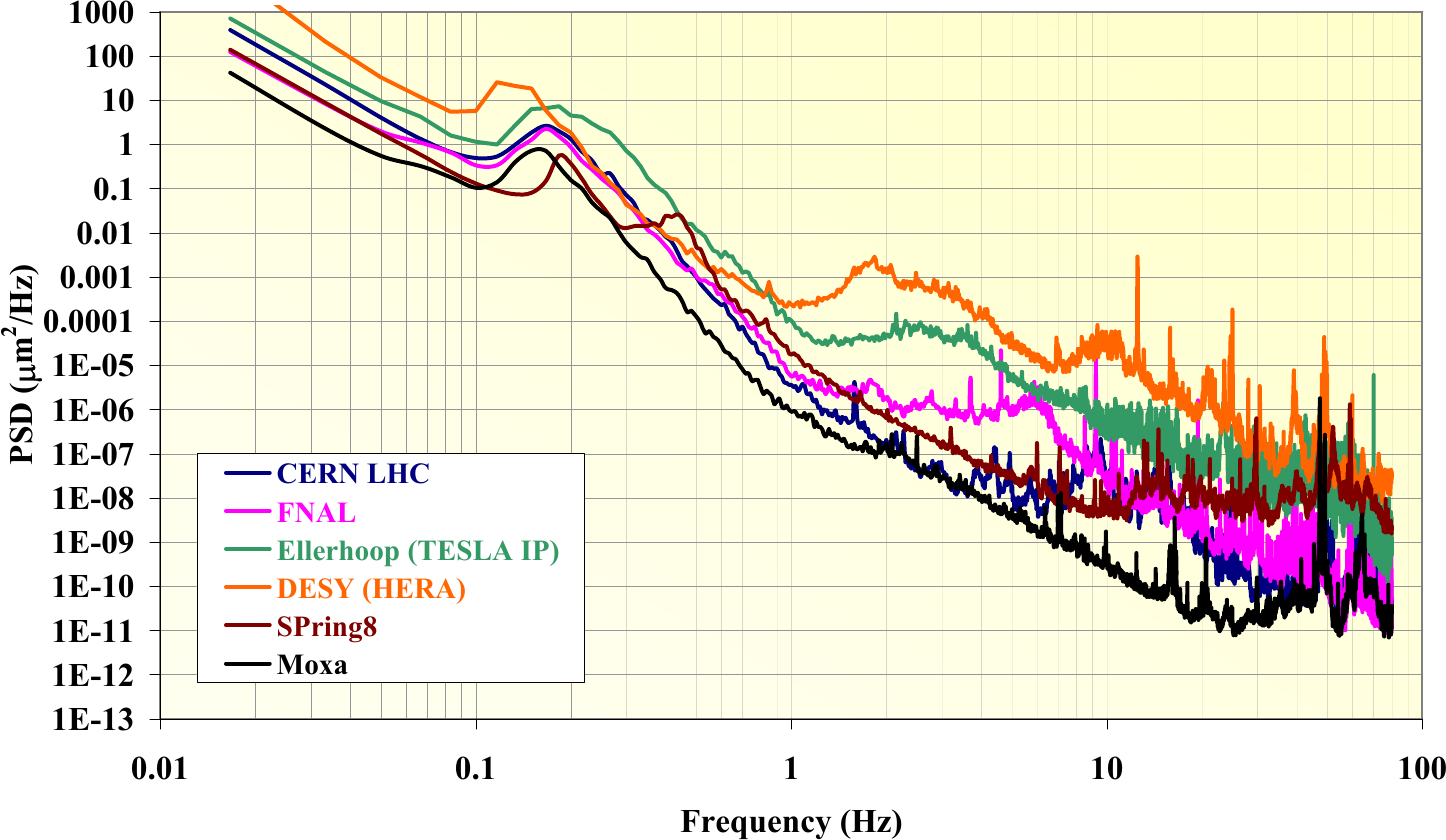
Figure 1: Power spectral density of ground vibration in the vertical direction at multiple locations (source)
2 Measurement Analysis
All the files (data and Matlab scripts) are accessible here.
2.1 Load data
data = load('mat/data_028.mat', 'data'); data = data.data;
2.2 Time domain plots
figure; hold on; plot(data(:, 3), data(:, 1)); hold off; xlabel('Time [s]'); ylabel('Voltage [V]'); xlim([0, 100]);
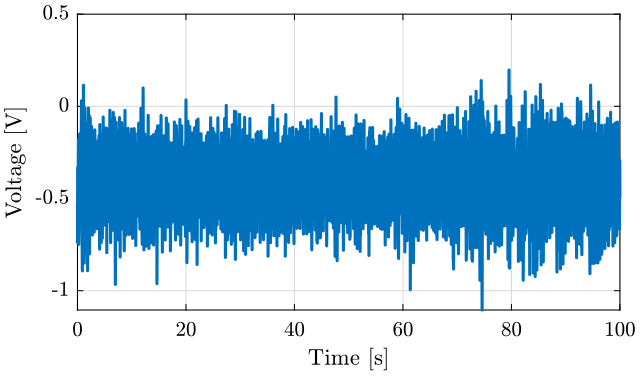
Figure 2: Measurement of the ground motion - Time domain
2.3 Computation of the ASD of the measured voltage
dt = data(2, 3) - data(1, 3); Fs = 1/dt; win = hanning(ceil(10*Fs));
[px_dc, f] = pwelch(data(:, 1), win, [], [], Fs);
figure; hold on; plot(f, sqrt(px_dc)); hold off; set(gca, 'xscale', 'log'); set(gca, 'yscale', 'log'); xlabel('Frequency [Hz]'); ylabel('Amplitude Spectral Density $\left[\frac{V}{\sqrt{Hz}}\right]$') xlim([0.1, 500]);
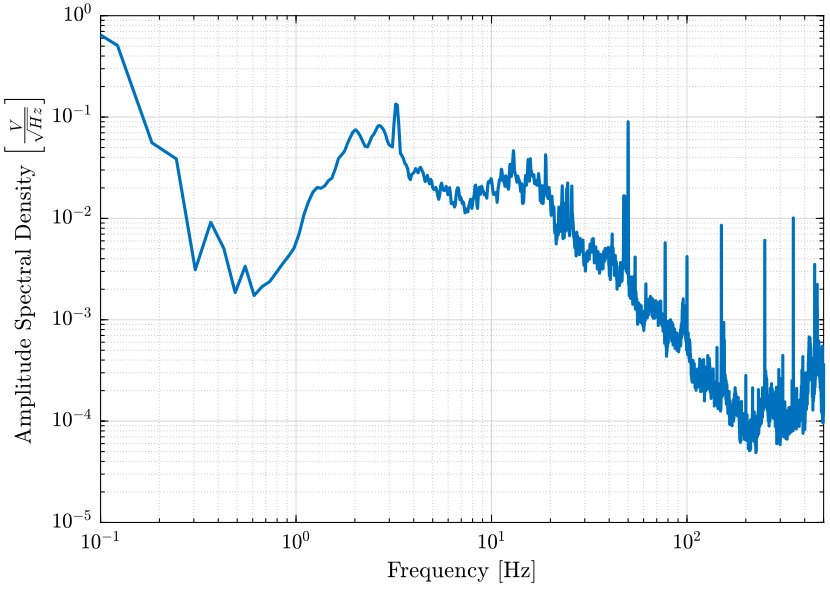
Figure 3: Amplitude Spectral Density of the measured Voltage
2.4 Scaling to take into account the sensibility of the geophone and the voltage amplifier
The Geophone used are L22. Their sensibility is shown on figure 4.
S0 = 88; % Sensitivity [V/(m/s)] f0 = 2; % Cut-off frequency [Hz] S = S0*(s/2/pi/f0)/(1+s/2/pi/f0);
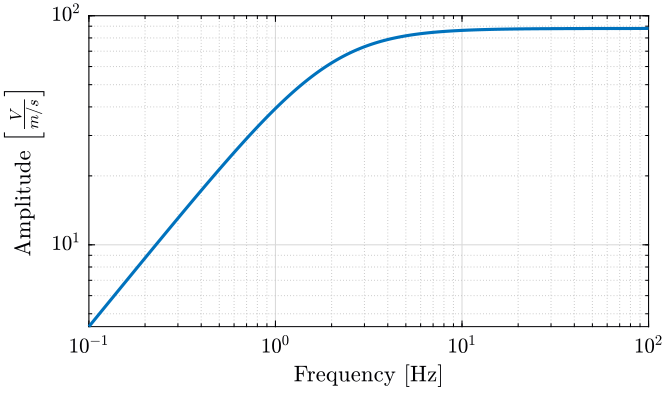
Figure 4: Sensibility of the Geophone
We also take into account the gain of the electronics which is here set to be \(60dB\).
G0_db = 60; % [dB] G0 = 10^(G0_db/20); % [abs]
We divide the ASD measured (in \(\text{V}/\sqrt{\text{Hz}}\)) by the gain of the voltage amplifier to obtain the ASD of the voltage across the geophone. We further divide the result by the sensibility of the Geophone to obtain the ASD of the velocity in \(m/s/\sqrt{Hz}\).
scaling = 1./squeeze(abs(freqresp(G0*S, f, 'Hz')));
2.5 Computation of the ASD of the velocity and displacement
The ASD of the measured velocity is shown on figure 5.
figure; hold on; plot(f, sqrt(px_dc).*scaling); hold off; set(gca, 'xscale', 'log'); set(gca, 'yscale', 'log'); xlabel('Frequency [Hz]'); ylabel('ASD of the measured Velocity $\left[\frac{m/s}{\sqrt{Hz}}\right]$') xlim([0.1, 500]);
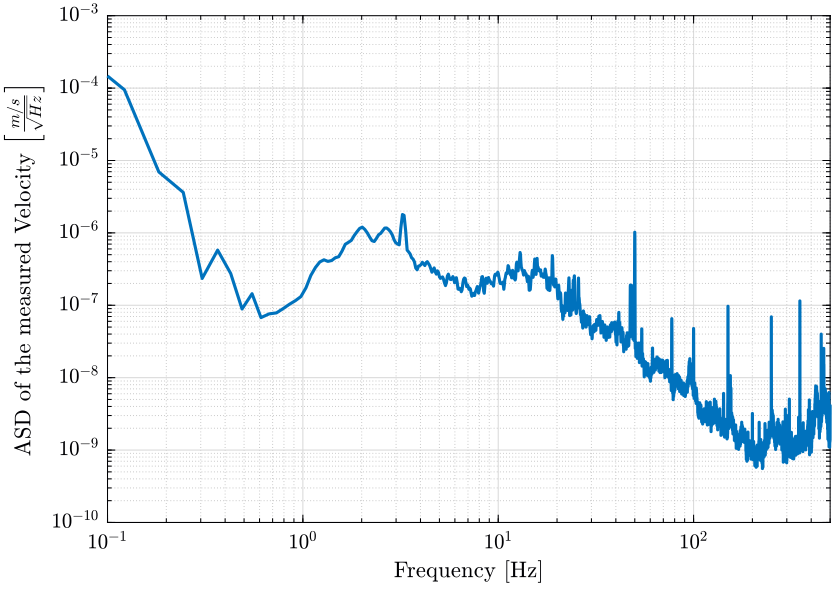
Figure 5: Amplitude Spectral Density of the Velocity
We also plot the ASD in displacement (figure 6);
figure; hold on; plot(f, (sqrt(px_dc).*scaling)./(2*pi*f)); hold off; set(gca, 'xscale', 'log'); set(gca, 'yscale', 'log'); xlabel('Frequency [Hz]'); ylabel('ASD of the displacement $\left[\frac{m}{\sqrt{Hz}}\right]$') xlim([0.1, 500]);
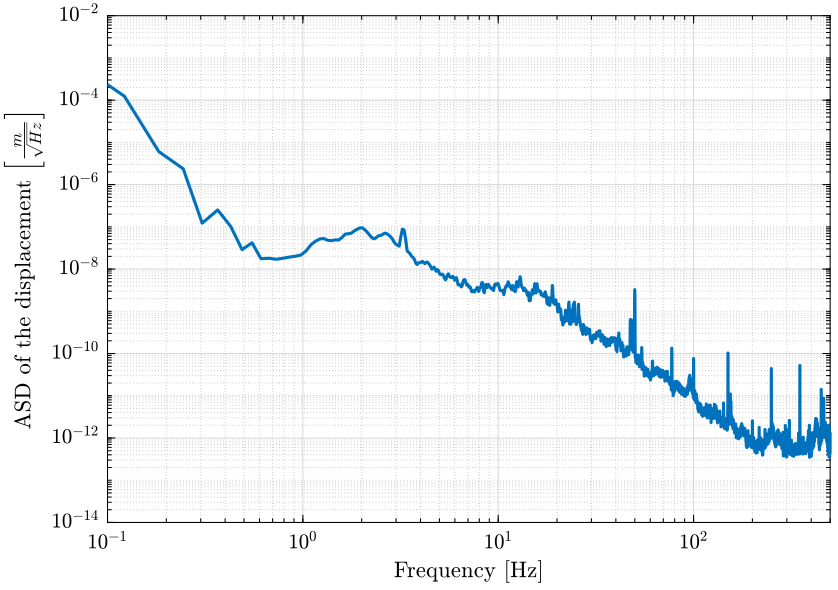
Figure 6: Amplitude Spectral Density of the Displacement
And we also plot the PSD of the displacement in \(\frac{{\mu u}^2}{Hz}\) as it is a usual unit used (figure 7). One can then compare this curve with the figure 1.
figure; hold on; plot(f, ((sqrt(px_dc).*scaling)./(2*pi*f).*1e6).^2); hold off; set(gca, 'xscale', 'log'); set(gca, 'yscale', 'log'); xlabel('Frequency [Hz]'); ylabel('PSD of the measured displacement $\left[\frac{{ \mu m }^2}{Hz}\right]$') xlim([0.1, 500]);
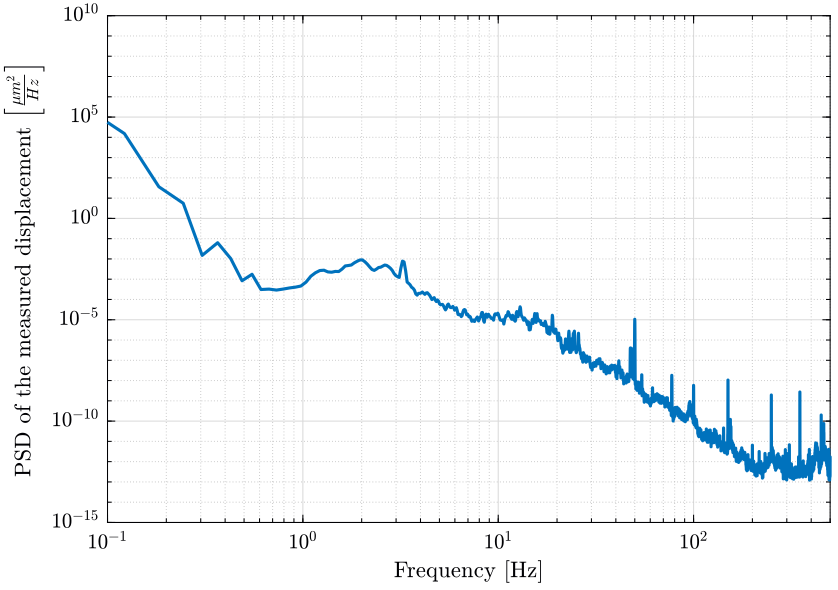
Figure 7: Power Spectral Density of the measured displacement
2.6 Comparison with other measurements of ground motion
Now we will compare with other measurements.
2.6.1 Load the measurement data
First we load the measurement data. Here we have one measurement of the floor motion made at the ESRF in 2018, and one measurement made at CERN.
id09 = load('./mat/id09_floor_september2018.mat'); cern = load('./mat/ground_motion_dist.mat');
2.6.2 Compute PSD of the measurements
We compute the Power Spectral Densities of the measurements.
Fs_id09 = 1/(id09.time3(2)-id09.time3(1)); win_id09 = hanning(ceil(10*Fs_id09)); [id09_pxx, id09_f] = pwelch(1e-6*id09.x_y_z(:, 3), win_id09, [], [], Fs_id09);
Fs_cern = 1/(cern.gm.time(2)-cern.gm.time(1)); win_cern = hanning(ceil(10*Fs_cern)); [cern_pxx, cern_f] = pwelch(cern.gm.signal, win_cern, [], [], Fs_cern);
2.6.3 Compare PSD of Cern, ID09 and ID31
And we compare all the measurements (figure 8).
figure; hold on; plot(id09_f, id09_pxx, 'DisplayName', 'ID09'); plot(cern_f, cern_pxx, 'DisplayName', 'CERN'); plot(f, ((sqrt(px_dc).*scaling)./(2*pi*f)).^2, 'k', 'DisplayName', 'ID31'); hold off; set(gca, 'XScale', 'log'); set(gca, 'YScale', 'log'); xlabel('Frequency [Hz]'); ylabel('PSD [$m^2/Hz$]'); legend('Location', 'northeast'); xlim([0.1, 500]);
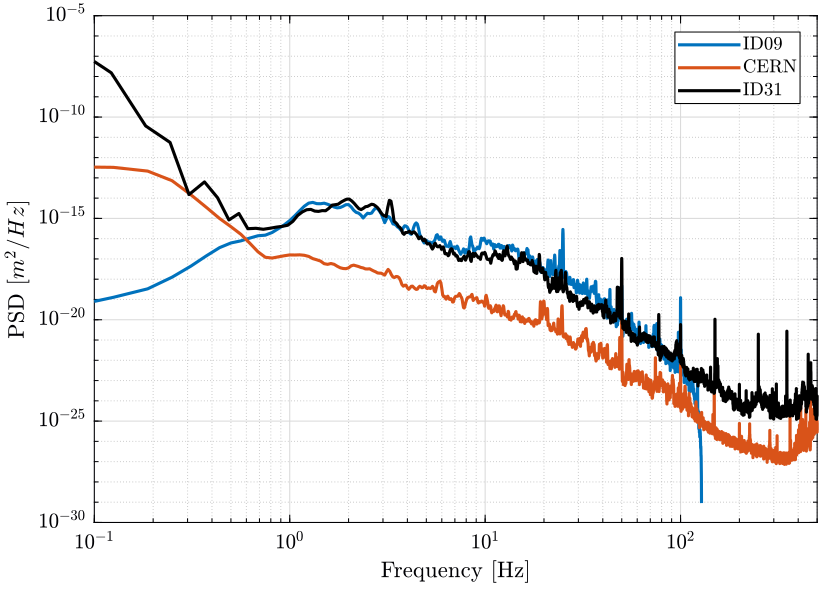
Figure 8: Comparison of the PSD of the ground motion measured at different location